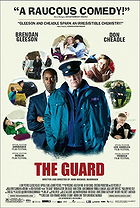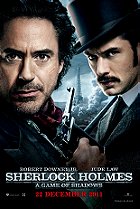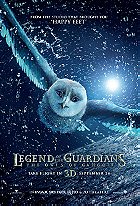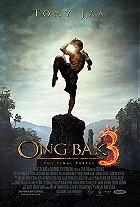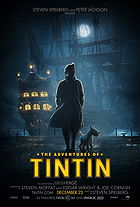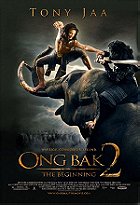After six feature films (including a remake) and two TV shows, a prequel exploring the apes' rise to global dominance seems to be the only avenue left to tackle in the exhausted Planet of the Apes franchise. Borrowing bits and pieces from earlier films (most notably Conquest of the Planet of the Apes), 2011's Rise of the Planet of the Apes starts from scratch, rebooting the tired saga and asking that we forget all the prior Apes pictures. Written by Rick Jaffa and Amanda Silver (their first screenplay since 1997's The Relic), Rise of the Planet of the Apes is a fresh, baggage-free outing that disposes of the franchise's pre-existing timeline to resurrect the Apes brand and pave the way for a whole new series. Surprisingly, the gamble pays off. Directed by Rupert Wyatt (2008's The Escapist), Rise of the Planet of the Apes is a rare summer blockbuster that shows more interest in storytelling and character development than mind-numbing action.
In San Francisco, ambitious scientist Will Rodman (James Franco) is testing a particular virus on apes that can potentially cure Alzheimer's Disease. After an accident leaves both the project and Will's star experimental subject dead, he takes home the baby ape left behind to save its life. He only intends to take care of the ape momentarily but ends up keeping the pet to comfort his dying father, Charles (John Lithgow). Naming him Caesar, the chimp grows up to be an obedient pet with a heightened intellect and a curiosity about the outside world. However, the household's tranquillity is shattered when Caesar's fiercely protective instincts lead to his imprisonment in a shady primate shelter. He is abused and mistreated by both the staff and other inmates, leading Caesar to lose his faith in humanity. The intelligent ape longs for freedom and looks to harness the power of Will's viral creation to create an ape army and spearhead an uprising against humankind.
In addition to being more patient and meticulous than typical summer blockbusters, Rise of the Planet of the Apes tackles several social and political topics. It brutally depicts Caesar's abuse while imprisoned, observing the tragic darkening of his soul and sending a message about animal mistreatment. It also raises ideas about the morality of using animals for drug testing, and about the evils of greedy pharmaceutical companies more interested in their bottom line than ethics. On top of this, Caesar's abnormally high intelligence raises provocative questions - what rights does Caesar have? Should he be treated as an equal? Is it morally acceptable for him to be owned and treated like a pet? While Rise of the Planet of the Apes does not explore this stuff with genuine profundity (this is a summer action movie), the film's alacrity is to be admired - Jaffa and Silver clearly want to leave you thinking about various things instead of feeling numb from countless explosions.

After Caesar's incarceration, the film is enthralling in the way it wordlessly portrays the ape growing from an uncertain newcomer to a feared leader, using his superior intellect to plot an escape plan and unite his ape army. During this section, the human characters are less interesting. The entire subplot concerning Will's father is downright affecting, but the rest of the human stuff is somewhat clumsy and lazy. The fact that the apes' interactions are so enthralling despite the lack of dialogue is a testament to Rupert Wyatt's strong direction and storytelling. It's also a testament to the workmanship of Weta Workshop, whose vibrant, expressive motion-capture technology effortlessly conveys the complexities of the ape characters. The eyes are astonishingly soulful, allowing these digital creations to express genuine depth and feeling.
Viewers expecting tonnes of ape combat may be disappointed by the prolonged build-up, but the rest of us will have no trouble appreciating the dramatic growth and character-building. Even despite the lack of action, this is a briskly-paced motion picture that never noticeably lags. Plus, the payoff of marvellous - the film's climax set atop the Golden Gate Bridge is a true highlight. It's an epic battle pitting the awakened apes against armed forces, and - on top of being coherently shot and edited - it carries emotional weight and suspense. It almost goes without saying that the CGI is phenomenal, bordering dangerously close on photorealism. The only troublesome thing about the digital effects is that they sometimes lack weight and inertia. For example, it does not look quite right when Will picks up a three-year-old Caesar, and, later on, Caesar climbs into a car that is not weighed down by the ape's mass.

Andy Serkis is the go-to guy for motion capture characters, having already played Gollum in Lord of the Rings and King Kong in Peter Jackson's 2005 epic. Here, Serkis is sublime as the conflicted Caesar, giving the character convincing life and conveying Caesar's interior revelations and craving for freedom. Serkis is the film's soul; he truly becomes an ape, and he is both lovable and fundamentally human. The rest of the cast are serviceable but are not on the same level as Serkis. The biggest standout is John Lithgow, who nails the bewilderment associated with Alzheimer's and is both believable and empathetic in the role of Will's father. Meanwhile, James Franco is merely okay as Will, and the film completely wastes Freida Pinto (Slumdog Millionaire) as a thankless love interest with no relevance to the story.
Not everything works here, as a few corny references to the 1968 film do not entirely gel, but Rise of the Planet of the Apes is a marvellous resurrection of an ailing saga. Its ending leaves room wide open for a sequel, but this self-contained story is satisfying by itself, especially with an extra sequence during the end credits that briskly illustrates the fall of man. I'm hooked; bring on the sequel!
8.2/10
 Login
Login
 Home
Home 183 Lists
183 Lists 1667 Reviews
1667 Reviews Collections
Collections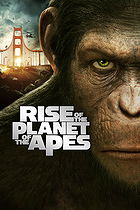

 0 comments,
0 comments, 